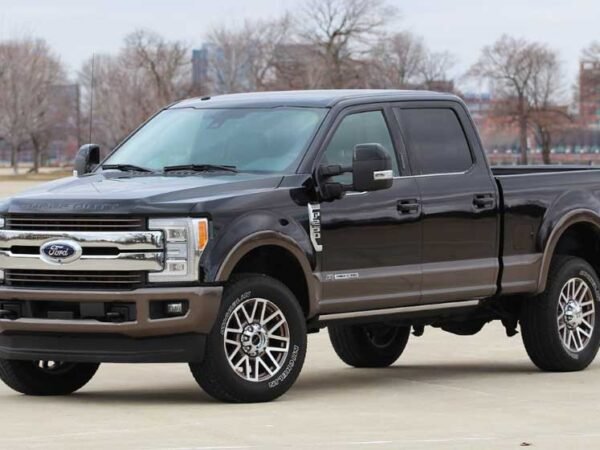Introduction
Drivers all across the world are trying to get more miles per gallon (MPG) as fuel prices go up and people become more worried about the environment. Even though automobile companies are always making new, more fuel-efficient models, many people want to make their cars or trucks better. This pursuit usually yields several MPG-boosting claims. Some modifications might hurt your car’s performance or make it work less well. It’s important to know what modifications matter and why. So, you may get enhancements that will save you money right away and in the long run.
The Science of Fuel Efficiency
Vehicle weight, rolling resistance, engine performance, aerodynamics, and driving style impact fuel economy. Best MPG modifications generally address one or more of these. For instance, reducing aerodynamic drag and rolling resistance makes the vehicle and tires move more smoothly. Engine improvements improve combustion to burn fuel more efficiently. Consider how modifications will influence the system before making them. Because improving one issue might make another worse without intention, a balanced strategy is essential. A Class 4 MOT ensures your vehicle meets the required safety and environmental standards.
Aerodynamic Enhancements for Reduced Drag
One of the best ways to improve MPG is to reduce aerodynamic drag at high speeds. Highway driving, when wind resistance is vital, requires this. Body kits, grille shutters, and air dams help improve airflow around the vehicle. Famously, pickup truck tonneau covers reduce truck bed turbulence and improve highway fuel economy. Taking down roof racks or cargo bins can reduce drag and increase airflow immediately.
Lightweight Components for Lower Mass
Weighted vehicles require more energy to accelerate and maintain speed. Reduce weight to boost fuel efficiency. Heavy standard parts can be replaced with lighter ones. Aluminium or carbon-fiber wheels reduce unsprung weight, making the suspension operate better and require less energy to turn. Performance exhaust systems, lightweight body panels, and seats can save weight. Find a balance between weight reduction and automotive safety and utility. Giving up important amenities or weakening the vehicle for a little MPG boost is never worth it.
Tire Upgrades for Lower Rolling Resistance
Most consumers overlook tires’ fuel economy impact. LRR tires waste as little energy as possible when rolling. They reduce friction without compromising safety or driving comfort by employing tread patterns, rubber compositions, and sidewall designs. Misinflated tires cause extra drag, making the engine work harder. If you drive long distances daily, using LRR tires and regular tire maintenance will save you petrol.
Lubrication and Friction Reduction
Every automotive part that moves generates friction, which requires energy to remove. Good synthetic motor oil, gearbox fluid, and differential lubricants reduce internal friction and improve automobile performance. Advanced lubricants reduce engine drag and prolong component life by maintaining viscosity at variable temperatures. Some drivers use ceramic or low-friction wheel bearings to minimise resistance even further, although fuel economy improves less. These upgrades extend automobile life and boost performance.
Engine Tuning and ECU Remapping
Modern vehicle engine control units (ECU) need to govern fuel injection, ignition timing, and other performance parameters. Changing these settings reduces petrol usage and increases power through tuning or ECU remapping. Properly adjusted oecus ensures the engine runs at its optimum under regular driving conditions, improving fuel efficiency. A skilled tuner who can balance fuel efficiency, performance, and emissions compliance is crucial. Improper tuning can damage the engine, increase emissions, and impair MPG.
The Role of Driving Habits in Maximizing Modifications
Without changing your driving style, even the best enhancements won’t help. Accelerating smoothly, maintaining speed, forecasting traffic, and decreasing idle will enhance MPG. Many drivers think a real-time fuel economy monitor helps them adjust their driving patterns to maximise vehicle modifications. Combining mechanical improvements with careful driving may improve fuel efficiency more than merely changing your automobile.
Avoiding Common Fuel Economy Myths
Many things and equipment promise to enhance MPG, however many lack scientific proof. Fuel additives, magnetic fuel line gadgets, and questionable ‘fuel-saving chips’ seldom make a notable effect. Rarely, these substances can damage the engine or air-cleaning systems. Government fuel economy initiatives and independent vehicle studies propose making improvements that are supported by credible testing and statistics.
Conclusion
Better fuel mileage doesn’t require a miracle solution. Instead, combine proven modifications with smart maintenance and safe driving. When done well, aerodynamic enhancements, weight loss, tire upgrades, ECU tuning, and airflow systems increase vehicle efficiency. This reduces pollution, petrol costs, and environmental effects. Implementing sensible fuel-saving adjustments pays dividends on every journey when the economics and environment impact how we travel.













